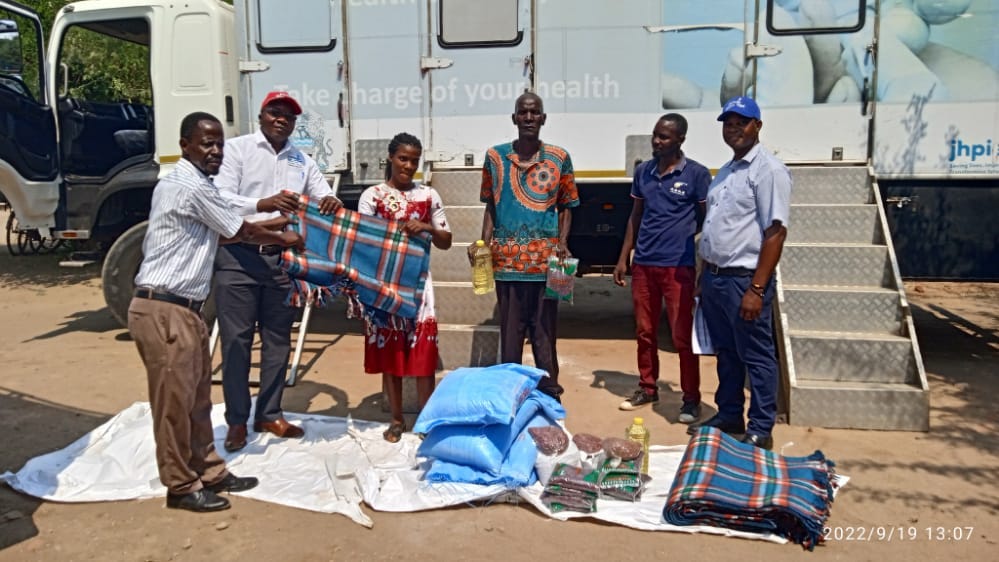Jpiegho donates relief items to Chikwawa health workers
Each individual received a package of 80kgs of maize flour, cooking oil, beans, and five blankets.
Malawi: Jpiegho on Monday donated relief items to twenty-six health care workers who survived Cyclone Ana and Gombe in Chikwawa district as a way of consoling and encouraging them to continue supporting the health department despite experiencing such a disaster this year.
Jpiegho Deputy Health Project Director Enerst Nkhoma stated after donating the items that the relief items were delivered to assist the health care workers and beneficiaries who collaborate with them in the district, and that each individual received a package of 80kgs of maize flour, cooking oil, beans, and five blankets.
"We came here to donate relief items to victims of cyclone Ana and Gombe, particularly health care workers and some of the beneficiaries of our work in Chikwawa; we brought blankets, cooking oil, maize flour, and beans; we are looking for health issues here, particularly preventing further spread of HIV/AIDS," he explained.
Meanwhile, Aubrey Nile, a Jpiegho beneficiary, was overjoyed after receiving the relief items and promised to use them appropriately rather than selling them.
However, he argued that the items arrived late given the time the floods occurred and asked for quick interventions if they occurred again to console them.
"We are very grateful for receiving such a relief as it will help us survive having had a scarcity of food in our homes after we were hit by the cyclones we promise to use the items wisely to support even though the relief has come at a late time, I would love to see such a relief come immediately once floods occur," he said.
On his part, Chikwawa District Health Assistant Human Resource Officer Stanford Jere stated that the relief items received would alleviate some of the problems that some of its employees had after being hit by cyclones and some items were lost, including food and shelter, and that he hoped this would boost the energy they had for work.
"These relief items are very important because they will reduce the problems that our members of staff had because they lost food and shelter and their contribution to work has not been positive enough because they were also psychologically affected," he said.





